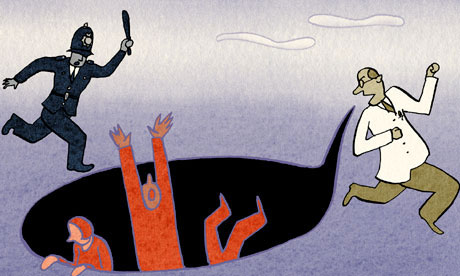In one sense, Inequality for All is absolutely the film of the moment. We are living through tumultuous times. The economy has tanked. Austerity has cut a swath through the country. We're on the verge of a triple-dip recession. And, in another, parallel universe, a small cohort of alien beings – or as we know them, bankers – are currently engaged in trying to figure out what to spend their multimillion-pound bonuses on. Who wouldn't want to know what's going on? Or how it happened? Or why? Or if it is really true that the next generation down is well and truly shafted?
And yet… what sucker would try to make a film about it? It's not exactly Skyfall. Where would you even start? Because there are some films that practically beg to be made. And then there's Inequality for All; the kind of film that you can't quite believe that anybody, ever, considered a good idea, let alone had the passion and commitment to give it two years of their life.
How did you even come up with the idea of making a film about economics? I ask the director Jacob Kornbluth. "I know! People would roll their eyes when I told them. They'd say it's a terrible idea for a film." On paper it is, indeed, a terrible idea. A 90-minute
documentary on income inequality: or why the rich have got richer and the rest of us haven't (I say "us" because although it's focused on America, we're snapping at their heels) and which traces a line back to the 1970s, when things stopped getting better for the vast majority of ordinary working people and started getting worse.
"It always sounded so dry," says Kornbluth. "But then I'd tell people it's
An Inconvenient Truth for the economy and they'd go, Ah!"
In fact,
Inequality for All, which premiered at the
Sundance film festival a fortnight ago, is anything but dry. It won not just rave reviews but also the special jury prize and a major cinema distribution deal, and while it owes an obvious debt to
Al Gore's
An Inconvenient Truth, it is, in many ways, a much better, more human and surprising film. Not least because, incredibly enough, it's actually pretty funny. And, in large part, this is down to its star,
Robert Reich.
Reich is not a star in any obvious sense of the word. He's a 66-year-old academic. And he's been banging on about inequality for more than three decades. At one point in the film he looks quite downcast and says: "Sometimes I just feel like my life has been a total failure." An archive clip of him on CNN from 1991 looking fresh-faced and bushy-haired shows that he has literally been saying the same thing for decades upon decades. And yet, as he tells me cheerfully on the phone from his home in California, "It just keeps getting worse!"
These days he's a professor of public policy at the University of California at Berkeley and while he's not a figure we're familiar with in the UK, he's been part of American public life for years. At the start of the film, he introduces himself to a lecture hall full of students, telling them how he was secretary of labour under Bill Clinton. "And before that I was at Harvard. And before that I was a member of the Carter administration. You don't remember the Carter administration, do you?" The students remain silent. "And before that," says Reich with impeccable comic timing, "I was a special agent for Abraham Lincoln." He shakes his head. "Those were tough times."
Reich's books and ideas have been at the forefront of Democratic party thinking for a generation. He is an intellectual heavyweight, a veteran policymaker, a seasoned political hand, and yet he also has the delivery of a standup comedian. His ideas were the basis for Bill Clinton's 1992 election campaign slogan, "Putting People First" (they were both Rhodes scholars and he met Clinton on board the boat to England; he once dated Hillary too, though he only realised this when a New York Times journalist rang him up and reminded him). And they were still there at the heart of President Obama's inaugural address last month. America could not succeed, said Obama, "when a shrinking few do very well and a growing many barely make it". What Reich, basically, has been saying since the year dot.
What's extraordinary is how, somehow, these ideas have been translated into a narrative that shows every sign of being this year's hit documentary film. It certainly shocked Reich. He says he was amazed when Kornbluth first pitched the idea of a film. "He came and said that he'd read my book,
Aftershock, and that he loved it and wanted to do a movie about it. And I honestly didn't know what he meant. How could you make a movie out of it?"
But Kornbluth has made a movie out of it. A really astonishingly good movie that takes some big economic ideas and how these relate to the quality of everyday life as lived by most ordinary people. The love and care and artistic flair that Kornbluth brought to it is evident in every frame. It was really really hard work, he tells me, to make something look that simple. But then "I grew up poor. So I've always been very aware of who has what in society." His father had a stroke when Kornbluth was five and died six years later. And his mother, who didn't work because she was raising three children, died when he was 18.
Any synopsis of the film runs the risk of making it seem dry again, but essentially it describes how the middle classes have come to have a smaller and smaller portion of the economic pie. And how, since 70% of the economy is based on the middle classes buying stuff, if they don't have any money to buy this stuff, it cannot grow. Meanwhile, the government has allowed the super-rich, the "one per cent", to take more of the nation's wealth. Half of the US's total assets are now owned by just 400 people – 400! – and, Reich contests that this is not just a threat to the economy, but also to democracy.
Kornbluth tells me that he initially had the idea of casting Reich in a feature film. "I'd seen him on TV and I just thought he'd make a great tax inspector in this film I was making. Although, actually, it turned out he was a terrible actor. But we hit it off. And I discovered that he and I share a sense of humour. I'm not a documentarian. My background is comedy. Yet I just thought that this could be an amazingly riveting film. To me it's the most important story of our time. And nobody was telling it. I kept on reading the papers and watching the news and I really wanted a story. I craved it. I just knew that to do it, we would have to make it as funny and human as possible."
And it's this, the gentle humour at the heart of the film, and the lightness of its direction, that are its winning ingredients, disguising what is, in fact, incredibly powerful. Because at heart Inequality for All is a revolutionary film. Or, at least, its dearest desire is to precipitate a revolution in the way that we think about economic matters. As Reich tells me, "the economy is not like the weather". It's not inevitable. It's not determined. "An economy does not exist in nature. We don't have to settle." And, crucially, it can be changed.
But the film's main stroke of brilliance is to put Reich, the unlikely hero, at the centre. "I had never done anything political before," says Kornbluth. "I didn't consider myself political. But seeing his example, the way that he has fought this fight for so many years has been an absolute inspiration to me. I see it in his students, they really do walk out of his lectures and want to change the world."
As in An Inconvenient Truth – or "the most lucrative PowerPoint presentation in history", as one critic called it – the film is structured around a lecture, or rather series of lectures: Reich's incredibly popular wealth and poverty class at Berkeley. But it is only loosely used as a vehicle. There are also news clips and interviews and stylised graphics and archive footage.
And what the film tries to do is thread together evidence that many people know about – the increasing struggle of the middle classes to just get by, the way that the top 1% of society has unshackled itself from the rest of us and has seen its income increase exponentially, and the ever-increasing cost of the traditional avenues of improvement, such as higher education – and weave it into a cohesive and convincing narrative. It is, in some respects, a theory of everything. Reich charts the three decades of increasing median income after the second world war, a period he calls "the great prosperity" and then examines what happened in the late 1970s to put an end to it. The economy didn't falter. It kept on growing. But wages didn't.
The figures that Reich supplies are simply gobsmacking. In 1978, the typical male US worker was making $48,000 a year (adjusted for inflation). Meanwhile the average person in the top 1% was making $390, 000. By 2010, the median wage had plummeted to $33,000, but at the top it had nearly trebled, to $1,100,000.
"Something happened in the late 1970s," we hear him tell his Berkeley class. And much of the rest of the film is working out what happened.
Some inequality is inevitable, he says. Even desirable. It's what makes capitalism tick. But at what point does it become a problem? When the middle classes (in its American sense of the 25% above and below the median wage) have so little of the economic pie that it affects not just their lives but the economy as a whole.
Reich's thesis is that since the 1970s a combination of anti-union legislation and deregulation of the markets contrived to create a situation in which the economy boomed but less of the wealth trickled down. Though for a while, nobody noticed. There were "coping mechanisms". More women entered the workforce, creating dual-income families. Working hours rose. And increasing house prices enabled people to borrow.
And then, in 2007, this all came crashing to a halt. "We have exhausted all the options," he says. There's nowhere else left to go. It's crunch time.
It's crunch time that so many working families understand too well. They may not be familiar with the theory of income inequality but they haven't been able to avoid noticing that they've got less money in their pockets. "I've always thought that kitchen-table economics is the most important topic to most people," says Reich. "Their wages, their jobs, getting by. I've always tried to relate economics to where people live. That's why I was so excited about the film."
The human stories of working American families struggling to cope are at the emotional centre of the film. At a Q&A after the Sundance screening, a third of the audience admitted that they'd cried during the film at some point.
There's Erika and Robert Vaclav, for example, who pay $400 a week to keep their daughter in after-school care so that Erika can work on the checkout at Costco. "And I'm trying to work out if I should get her a phone so that she can walk home from school alone, and I know she's OK, or if I should continue paying the money." They lost their house when Robert was made redundant from his job as a manager at the now defunct electrical retailer Circuit City. And, it gradually transpires, that he's a student in Reich's wealth and poverty class at Berkeley.
"How much money do you have in your checking account?" Kornbluth asks Erika from off camera as she drives her daughter to school. "$25," she says and her voice starts to crack and waver.
One of Reich's greatest sources of humour is himself. In the opening shots of the film, the camera follows him walking to his car, a Mini Cooper. "I sort of identify with it," he says. "It's pretty little. I feel we are in proportion. Me and my car. We are together facing the rest of the world."
Later he takes a box out of the back of his car. "I always travel with my box," he says and explains that he suffers from a rare genetic condition – Fairbanks disease – that led to him only growing to 4ft 10in in height. The box is what he always takes to public-speaking events so that he can reach the podium.
He was bullied as a child "because that's just what happens when you're small" and repeatedly beaten up. His grandmother consoled him by telling him that when he was 10, 11 or 12 he'd shoot up. He never did. "It's never been a conscious thing on my part but that feeling of being bullied, and feeling vulnerable, has stayed with me. And maybe it's because of that that I can empathise with poor people. Because they are the most vulnerable. There is no one to protect them."
In the film, he tells how he made strategic alliances with older boys who could protect him. And years later, he discovered that one of them had travelled down to Mississippi to register voters and had been tortured and then murdered. "That changed my life," he says.
"He has never cashed in," says Kornbluth. "He's an incredibly smart guy and he could have found a way to correlate that into money as so many people do. But he never has. He has absolute integrity. It's almost shocking now for someone not to do that. I mean one of the film-makers I admire is Mike Leigh. And he does McDonald's commercials and I was like 'Whoa!' when I found out but I can't hold it against him. You can't hold it against anybody who's trying to make a living. But it makes Rob all the more amazing. He doesn't sit on boards. Or on thinktanks. He draws a modest salary. He has this absolute moral compass. And he's still trying to change the world."
In the 60s and 70s, this wasn't such a surprising thing. Reich recounts how he grew up "in a time of giants". His first job was working for Bobby Kennedy. Changing the world was what everyone wanted to do.
The world has changed. Just not in the way many thought it would. We fell victim to what Reich calls "the huge lie". That the free market is good. And government is bad. Government makes the rules, Reich keeps on reminding us, over and over. And it decides who benefits from those rules, and who is harmed. And increasingly, that boils down to the rich and the poor.
Perhaps the most surprising voice in the film is Nick Hanauer's. He's just your ordinary, everyday billionaire. One of the 1%. Except that he believes – like
Warren Buffett – that he doesn't pay enough tax. And that hammering the middle class, the ones who buy actual stuff, who create demand, which in turn creates jobs and more taxes, is simply bad for the economy. "I mean, I drive the fanciest Audi around, but it's still only one of them… Three pairs of jeans a year, that will just about do me."
The system simply isn't working, he says. It's put the millionaires and the billionaires, the Nick Hanauers and the Mitt Romneys – the people that Republican rhetoric describes as job creators – at the centre of the economic universe, rather than what Hanauer calls the true job creators – the middle classes.
The problem is, he says, is that they've been attacked from every side. He was one of the initial investors in Amazon, a business of which he's "incredibly proud", but he points out that on
revenues in the last three months of 2012 of $21bn (£13bn), Amazon employs just 65,600 people. "If it was a mom and pop retailer, it would be 600,000 people, or 800,000 or a million."
Globalisation and technology have played their role. But so has the government. For decades, under both Republicans and Democrats the highest rate of tax didn't dip below 70%. Now, Hanauer says he pays 11% on a six-figure income. Hanauer believes that if he was taxed more, he would be better off, because his company – he's a venture capitalist and his family own a pillow factory – would sell more products, and he would, therefore, make more money.
This is inequality imposed from the top. Reich's charts show that for years, chief executives' earnings kept in step with other employees. And then in 2000-03 "It went kerbluey", by which he means off the charts.
Which is where it still is. In the UK, Royal Bank of Scotland, having covered itself in glory in the Libor interest-rate fixing scandal, is currently contemplating bonuses for its investment banking division of £250m, according to reports last week. This, to put it another way, is the annual wage bill for at least 12,500 of its call-centre workers. Because this isn't just an American problem. It's a British one too.
"If there was upward mobility it would be OK," says Reich in the film. "But 42% of children born in poverty in the USA will stay there. In Denmark it's 24%. Even in Great Britain, where they still have an aristocracy, it's 30%."
It's probably a shocking statistic for Americans to hear. The problem is that by every index you can measure, inequality is worsening in Britain. There are fewer opportunities to overcome the barriers of your birth in the UK than in any other country in Europe. One of the most chilling moments in Inequality for All for a British audience is that how, faced with the same choices that America had in the 70s, we have, in the last year or so, taken the same path.
One of the key moments for Reich was the underinvestment in education, particularly higher education in the 70s. This was when America introduced tuition fees and its workforce started to fall behind the rest of the world's. When opportunities for those from low- and middle-income backgrounds began shrinking: precisely where the UK is today.
It's not just that wages have remained flat in America – as they have in the UK – it's that the expenses of everyday life have soared, in particular education and healthcare.
In December, the Office for National Statistics found that
richest 10% of people in Britain own 40% of the national wealth. In London and the south-east, one in eight households has almost £1m of assets. The bottom half of the country has no net property wealth and only £4,000 in pensions savings. For them, there is just rising prices. And the ever diminishing possibility of things ever being different for them or their children.
"Where America leads, sadly the rest of the world follows. This same thing is affecting people all over the world," says Reich. "If nothing is done to reverse this trend, Britain will find itself in exactly the same place as America in just a few years' time."
Earlier in the week, I notice that he'd tweeted: "Britain's austerity economics is complete disaster. Its economy shrinking." And pasted a link to the Wall Street Journal in which the head of the IMF took George Osborne to task. When I ask him about it, he calls our austerity economics "a cruel hoax". Cruel because "it hurts people who have been hurt enough". And a hoax because, "It simply doesn't work. Look at the figures."
It should be our crunch time too. We have more people living in poverty who have jobs than those who don't, according to Oxfam. The average British citizen – the average – is three pay cheques away from destitution. And with the entire country poised on the brink of a triple-dip recession.
Perhaps the unlikeliest thing about Robert Reich is how very chipper he is. Even though, by every measure, inequality has got worse in the United States since he started preaching his doctrine. He doesn't seem to let it get to him.
There are clips of him from the 90s when he used to be a regular pundit on Fox News, but as American politics has moved to the right, he has found himself cast as a dangerous leftie. "Robert Reich?" says a pundit on one news clip. "He's a communist. A socialist." It's not a coincidence that he makes a point of saying in the film that he is not, and never has been, a member of the Communist party. And he and Kornbluth go to extraordinary lengths not to mention the word "Sweden" or "Japan" and barely even "Germany".
No good will come of telling the American people what funny foreigners get up to. It is, instead, rather gently subversive, the aesthetic opposite of any film by Michael Moore. It tries to politely prod its viewers into looking at the world differently rather than beating them around the head with a heavy wooden bat marked "polemic".
But American politics has become so polarised, so ideologically vicious, that it's only a matter of time before it's attacked by the right as Stalinist propaganda. "But I'm used to that," he says. "I've been attacked at a personal level for the last 30 years. I'm just excited that this might trigger a debate. Though I'm trying not to get my hopes up."
Crunch time in the US is looking ugly. Reich believes that both the Tea Party and Occupy movements spring from the same sense of anger and frustration that people fear. That politics will become more polarised, more extreme, more hate-filled.
One of the key pieces of research that Reich cites is a study of tax data by Emmanuel Saez and Thomas Piketty which shows that the years of peak income inequality in America were in 1928 and 2007. Right before both crashes. "The parallels are striking," he says. It's also striking what happened in the years after 1928. How in Germany, to take a random example, worldwide depression also led to a vicious polarisation of right and left. And certain other outcomes.
Could that happen in America? "Oh good heavens, I hope not!" he says. "Though when you go into periods of economic insecurity with widening inequality which puts the middle class under stress, you create fertile ground for demagogues from left or right. The politics of hate. The politics of fear. We're already seeing that."
And yet, despite, it all, he remains hopeful. "Change has always been difficult," he says. It's why he teaches. If he can't change the world, maybe his students will. Or people who watch the film? I ask and get a classic, understated, deadpan but not entirely unoptimistic Reichian reply. "I'm trying to keep my expectations in check."
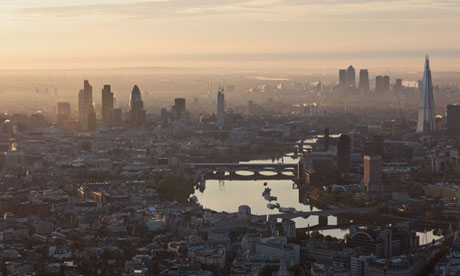

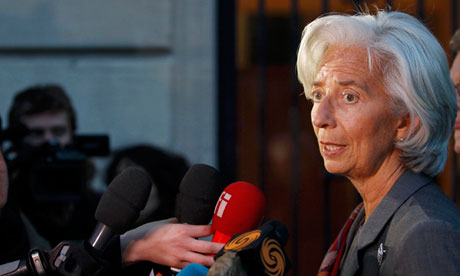

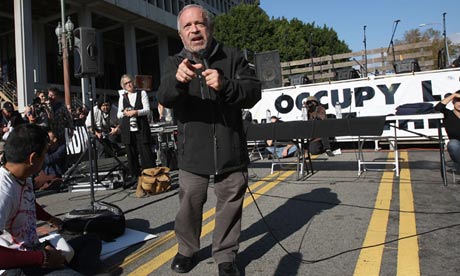
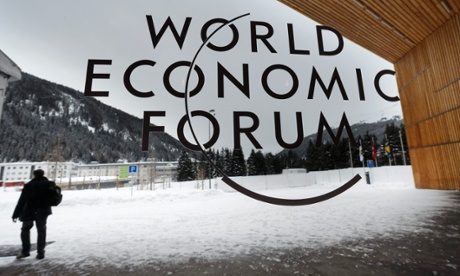

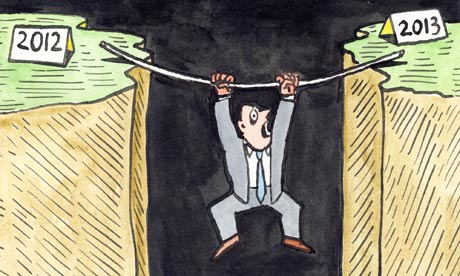
 172 Comments
172 Comments
